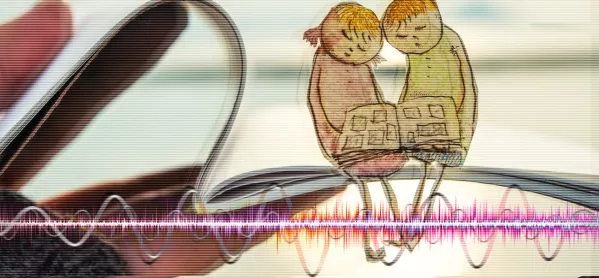If there’s one skill that is the biggest determiner of whether a student can access the secondary curriculum, reading comprehension might just be it, says Alex Quigley.
“Reading comprehension is crucial because, ultimately, the school curriculum is mediated by your ability to read and your comprehension,” he says.
Quigley is the national content and engagement manager at the Education Endowment Foundation, but many teachers will know him from his books: Closing the Vocabulary Gap and Closing the Writing Gap. When it comes to secondary literacy, then, Quigley speaks from experience. And he has a warning.
In this week’s Tes Podagogy podcast, Quigley says that despite the importance of reading comprehension, not enough secondary teachers know how to act when a student is struggling with it.
“In truth, there’s always been a long-standing recognition that those basic skills - being able to read and write, the three R’s - matter. They’ve always been something every teacher recognises are important. School leaders and secondary schools recognise we have to make sure they can secure the seeming basics of reading and writing,” he says.
“But there’s a big difference between paying attention to it and understanding it matters, and then actually teachers being able to make changes in their practice in response to struggling readers.”
The data shows that a substantial number of pupils begin secondary school below the expected standard in reading: in the latest figures, published by the Department for Education a few weeks ago, a quarter of pupils did not meet the expected standard in 2022.
“Most secondary school teachers are aware of that problem. But, in my experience, there is less training and less practice tailored towards making sure the curriculum is accessible,” Quigley says.
In the past few years, struggling readers have become an inspection priority for Ofsted, which has heightened the profile of reading comprehension. But overall, he adds, there’s a lack of confidence and knowledge from teachers about what to do when pupils are struggling to read in their subject.
Listen to more podagogy:
So, what do secondary teachers need to know?
Reading is a composite skill, says Quigley: to read well, students need good vocabulary knowledge, background knowledge, reading fluency and access to lots of different types of texts.
“What makes for better reading comprehension and teaching in the classroom is probably what makes for high-quality teaching, and that’s the explicit breaking down of complexity into smaller steps,” he says.
In geography, for example, if students are reading a complex case study about a city in India, there are demands on background knowledge and on unfamiliar vocabulary. They will have to navigate different graphs and mathematical information, too.
“I think most geography teachers would naturally take in that case study of a foreign city and would break it down. They’d activate some knowledge about what we know about this place, what we know about these themes and ideas that we know from geography already, and there may be certain words that we pre-teach and unlock a little,” he says.
In the podcast, Quigley goes on to explain what good teaching practice looks like in more detail, how interventions should take place and how teachers can assess reading comprehension.





